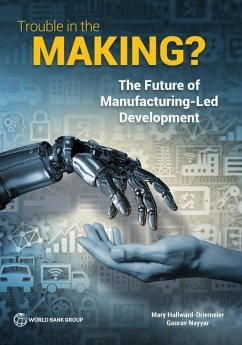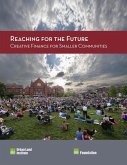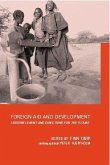"Technology and globalization are threatening manufacturing's traditional ability to deliver both productivity and jobs at a large scale for unskilled workers. Concerns about widening inequality within and across countries are raising questions about whether interventions are needed and how effective they could be. 'Trouble in the making?: the future of manufacturing-led development' addresses three questions: How has the global manufacturing landscape changed and why does this matter for developemnt opportunities?; How are emerging trends in technology and globalization likely to shape the feasibility and desirability of manufacturing-led development in the future?; If low wages are going to be less important in defining competitiveness, how can less industrialized countries make the most of new opportunities that shifting technologies and globalization patterns may bring?. The book examines the impacts of new technologies (i.e., the Internet of thingts, 3-D printing, and advanced robotics), rising international competition, and increased servicification of manufacturing productivity and employment. The aim is to imform policy choices for countries currently producing and for those seeking to enter new manufacturing markets. Increased polarization is a risk but the book analyzes ways to go beyond focusing on potential disruptions to position workers, firms, and locations for new opportunities"--Page 4 of cover.
Hinweis: Dieser Artikel kann nur an eine deutsche Lieferadresse ausgeliefert werden.
Hinweis: Dieser Artikel kann nur an eine deutsche Lieferadresse ausgeliefert werden.








